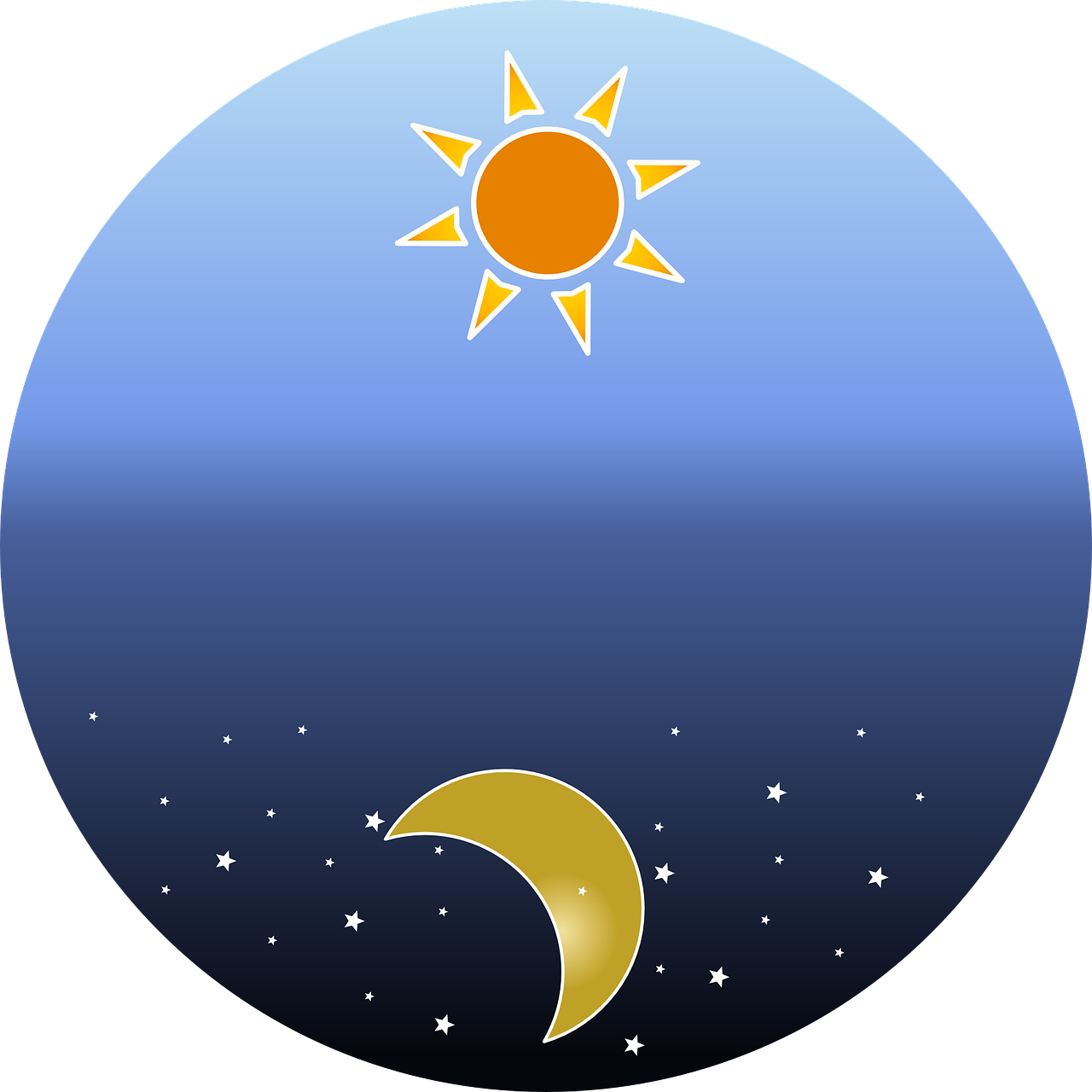
Why Circadian Rhythm Is So Important To Good Health
Have you ever experienced jet lag?
It’s an awful feeling, waking up one day (or falling asleep on a plane) and transporting yourself 8+ hours away from your normal timezone and then struggling to get to sleep like you normally would, at home.
Jet lag happens because our ability to move across multiple time zones throws us off our normal sleep and wake cycles, which are known scientifically as circadian rhythms.
And while jet lag is an extreme example of distorted circadian rhythm, there are millions (if not billions) of people who suffer the consequences of defying their body’s desire to regulate its natural clock.
As I’ll show you, there are several ways this happens.
Many of these are environmental, but some people find their “body clocks” are thrown off in other ways.
And for sure, one of the reasons has to do with how an imbalance in essential hormone levels put people in a place of disruption.
The bottom line is many people who deal with chronic health issues could improve their feelings of well-being by making a few small, but significant changes that protect circadian rhythm.
What Is Circadian Rhythm and How Is It Disrupted?
One of the top reasons people find themselves feeling sluggish, dealing with brain fog, and even developing chronic health issues has to do with how they’ve disrupted their body's natural clock.
I suppose I should address what circadian rhythm actually is, and how your body behaves when it is attuned to its circadian rhythm.
The fact that our days are 24 hours long is not lost on our innate biology.
The brain uses a circadian clock which is finely tuned to the natural rise and fall of the sun and is even sensitive to the change of seasons.
The region of the brain known as the suprachiasmatic nucleus (SCN) of the hypothalamus has specialized cells that are sensitive to the 24-hour cycle of a day and then administer signals to your endocrine system to regulate the release of a myriad of hormones.
Essentially your hormones are like a football team and this part of the brain serves as the coach that orchestrates the plays that allow you to function.
Now, the SCN does not control all hormones… but it does designate the timed release of certain hormones (cortisol and melatonin being especially important) and the downstream effect of their activation helps to regulate other hormones.
If at any time the SCN is thrown off its game plan it can really muck up how the “football team plays” and as a consequence the highly technical coaching program the coach designed can run afoul and the body begins to fall apart.
Think about it, a good coach can help a lousy team to win by effectively designing plays that set them up for success.
But, a lousy coach can’t help even the best team win.
And this is why circadian rhythm is so important, and why you should do your best to cultivate a lifestyle that protects it.
Now to get into the main factors that interfere with it.
1 - Disruptions In Sleep
Sleep is so incredibly important, I’ve written about how critical sleep is many times.
When sleep is disrupted it can cause your SCN to fail to do its job properly, sending your circadian rhythm crashing.
There are a number of ways we mess up sleep.
For some of us, we stay up too late and wake up early.
Some of us stay up too late and wake up too late. Yes, that’s an issue. Circadian rhythms are closely aligned with the natural rise and setting of the sun. So if you wake up too late and are exposed to a bright sun your body reacts negatively.
This is actually why some people who wake up late use sunrise alarm clocks to prevent the shock of super bright light.
Another thing people do that disrupts sleep has to do with how late they eat. Research indicates it’s best to stop eating before 8 pm to gain great sleep, this is true for those of you who go to sleep late.
Eating late sends signals to your body that cause it to remain in a reactive state while you digest. It can also elevate your heart rate which leads to disruptive sleep that causes you to wake up with elevated cortisol levels.
Even the environment you sleep in can affect circadian rhythm. For instance, if it’s too warm in your room, if your bed is uncomfortable, or you snore, these can result in poor sleep that disrupts your circadian rhythm.
The National Sleep Foundation lists sleep as one of the most important contributors to establishing a health circadian rhythm.
2 - Unbalanced Blood Sugar:
For those of you who’ve been following my work, you know how much I care about blood sugar.
The truth is establishing healthy blood sugar levels are linked to some of the most monumental health improvements a person could ever see.
And now I can show you that blood sugar levels play a huge role in your circadian rhythm too.
We have dozens upon dozens of different hormones circulating in our body, all that serve to keep us healthy and growing; problematically elevated blood sugar affects an incredibly important hormone, insulin, and when insulin is elevated it can savage the ability of hormones related to circadian rhythm to operate correctly.
2 of the hormones it really affects are cortisol and melatonin.
For this reason, it’s really important you try and control your blood sugar.
The easiest way to do this isn’t to get on a drug (though, some of you may need to)...
It’s to eat foods that keep blood sugar levels balanced - as well as to avoid eating too close to bedtime.
3 - Expose Yourself to REAL Light (And avoid Blue Light at Night)
Part of the reason so many of us aren’t doing well in the circadian rhythm department has to do with a.) working inside and b.) wearing sunglasses when we’re outside.
Sunlight exposure is an absolute must if we want to be healthy.
Research indicates getting sunlight exposure during the day is likely the best way to encourage the natural release of melatonin at night.
The blue light the sunlight emits sends signals to your brain that it's daytime, as the sun goes down and blue light fades your body begins to react and prepare for sleep.
It’s critical that you allow real, unfiltered light to hit your eyes, too.
The good news is you don’t need a lot of sun, as little as 15 minutes on a bright day and 30-60 minutes on cloudy days.
Because blue light is needed to tell you it's daytime, you want to avoid it at night. Check out this article I wrote that extols the virtue of being a blue light avoider.
4: Keep Stress Down:
You’ll remember that cortisol is one of the main hormones tied to circadian rhythm.
Well, if you’re stressed out all the time it means your cortisol levels will be elevated and that will cause you to fall into a phase of disruption.
What does it look like to reduce stress?
It could be many things.
Here’s what the Paleo Mom writes:
“Reducing stress means to remove stressors from your life. Whether that’s saying “no”, asking for help, or making changes to the structure of your life, whatever you can do to reduce stress will make a difference. Oh, and coffee increases your body’s stress response to psychological stressors, so you might want to reduce coffee or give it up altogether.
Managing stress means increasing activities that help regulate cortisol and make you more resilient to stressors. This might include taking up meditation, yoga, going for a walk at lunch, taking a bath, or just making time for a good laugh or a hobby in your life.”
Protect Your Circadian Rhythm
I understand that for some of you reading this, you may not have the immediate readiness to protect your circadian rhythm.
So I’ll just say this.
As a doctor, I think it’s best for anyone who works a job that is opposite of your circadian rhythm to do research on how to establish habits that help to provide balance.
Third shift or late shift work is a known carcinogen and this is part of the reason why. There are ways to combat the disruption, but none are as foolproof as being in tune with your body’s clock.
Otherwise, if you operate normally (meaning you don’t have insomnia, and work a normal job - or don’t work), I would suggest doing some of the things recommended above to ensure you’re doing all you can to protect your circadian rhythm.



